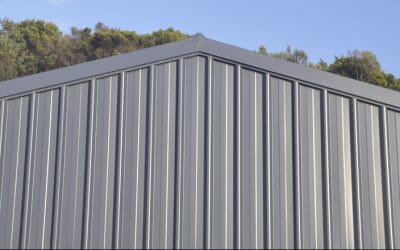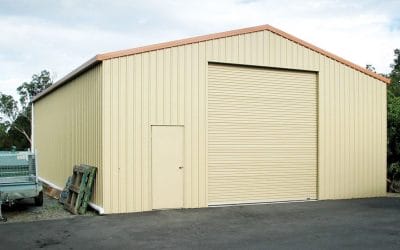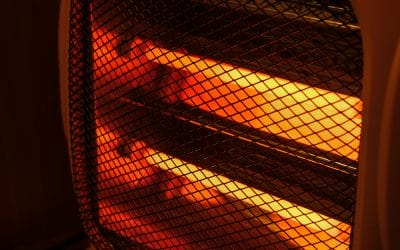Running power to your shed in Australia: What are your options?
When planning your shed build you need to consider your power options. Even the simplest shed will need electrical lighting so that you can work efficiently when it’s dark. More advanced sheds with workshops and power tools might even need a proper connection to the power grid. This article looks into the different options for running power to a shed in Australia, and which solution is best for yours.
DIY and Temporary Solutions
Battery powered lighting
For a backyard shed that just needs occasional lighting this could be a cheap and simple solution to get the job done. A rechargeable LED light can stick to your shed wall, and if you only use it a few minutes per day, it will need recharging every other month. This is a simple DIY solution, but can only be a permanent one if all you need is a little light from time to time.
Extension Cord
You could potentially get power to your shed by running an extension cord from your house. The positive of this method is that it’s cheap and you don’t need to be an electrician to get power to your shed. This will allow you to operate some appliances or power tools, but nothing too advanced.
There are a few hefty negatives to extension cords though. Firstly, it will be a nuisance if you regularly have to get the cable out, unroll it between your house and shed, and then pack it away afterwards. You can’t avoid this hassle by leaving the extension cord rolled out permanently because it’s dangerous. Extension cords are a trip hazard, they are liable to wear out if left outside, and can easily be broken by feet, pets, wheels, lawn mowers, and more. Extension cords can also overheat if covered, making them a potential fire hazard. Another downside is that extension cords are usually designed to run one appliance, not several at once – you can’t just stick a power-board on it and run your lights and power tools at the same time.
Generator
A generator is a power source of its own and that means you don’t need any lines running to your house. These will turn petrol or diesel into electricity to power any electrical equipment you may have. The sheds where a generator is most useful are those that are far from mains electricity or in areas where blackouts are common. There is a wide range of generators, from tiny portable ones, to massive industrial sized ones. You should get a professional electrician to wire up the shed properly to have the generator permanently installed.
The downside to generators is that they are quite expensive, noisy, and pollute the air. They also require refilling and may need servicing every once in a while.
Permanent and Professional Solutions
Getting the shed fully wired up and connected to mains power is the best solution for running power to a shed in Australia. Doing so will save you time and increase your productivity. You can draw as much electricity as you want and have as many power points as you like. Alternatively, you could still have it off-grid, but fully wired up by using solar/wind/petrol/diesel generation.
Permits and Licenses Required
In Western Australia, electrical work and especially electrical wiring, requires licences and permits. This is due to how dangerous dodgy wiring is to people and property. Electrical work is only allowed to be done by people with an electrician’s licence. There are also requirements for notification and certification of electrical work.
Overhead Wiring
In some cases, wiring to the shed could go overhead instead of underground. This can make the work simpler since no digging is required. For this method to make sense, the shed needs to be in an optimal position and the wires must not cross over a driveway or other hazardous/inconvenient zones. Best to check with your licensed electrician if this applies to you.
Underground Wiring
This is the best method for running power to a shed in Australia. That’s because it gives you as much power as you want, safely, and out of sight. This method requires planning to dig the trench in the best location. You will need to avoid all your underground utilities and record where the wire is, so you don’t accidentally cut it in the future. There are compliance and safety issues at every step for this one, so if you’re not an electrician yourself, get a hold of one.
Solar or Wind
An alternative to a generator for off-grid sheds is a solar or wind powered electrical system. These can produce either little or a lot of power depending on the size of your system. With batteries, they can store power even when the sunshine or wind speed is not in your favour. The benefits compared to generators are the lower ongoing costs and lack of noise and air pollution produced by these systems. The downside is the initial cost, sometimes limited lifespan, and potentially unreliable and limited power.
Thinking of building a new shed?
At Spinifex Sheds we build custom steel sheds to fit all your needs and requirements. From design and building permits to installation and cleaning up after, we take care of everything. We will even install conduit into the concrete for your shed’s electrical wiring, but recommended getting a professional electrician to get it connected to the grid. Contact us today and enquire about our custom built sheds!
Similar Articles
Can You Build a Shed on a Slope? | Solutions, Permits, Cost & More
Today we explore the challenges of building sheds on slopes, what solutions are available, the permits required, and finally what costs you might expect.
Sliding Doors vs Roller Doors | Which Type of Shed Door Should You Get?
Today we will compare two popular types of shed doors, sliding doors and roller doors. Discover their advantages and which type best suits your needs.
Best Way to Heat a Shed | Discover Your Options
Today we are going to explore the best way to heat a shed in winter, highlighting the best options available on the market and their pros and cons. Discover what the best heater for your shed is and pay attention to the important safety tips and advice outlined in...







